What happens in drug rehabilitation centers?
Drug rehabilitation is a steady and sensitive process for recovering drug addicts. There are so many stages in the drug rehabilitation process which includes various types of activities. Mainly an addicted person gets the environment where the can open up their mind and thoughts and think beautifully. A rehab center is a safe and fearless place for patients suffering from drug dependency.
What is drug rehabilitation?
Drug rehabilitation is the term that’s usually accustomed describe the mental and psychological treatment and processes that a person goes through once he or she depends on sure psychedelic Definition of the word substances. These substances are alcohol, opiates, amphetamines, or the other psychoactive drug. Drug rehabilitation in USA exists for the aim of serving to folks live through their addiction, as addiction will usually cause serious psychological and social issues if left untreated.
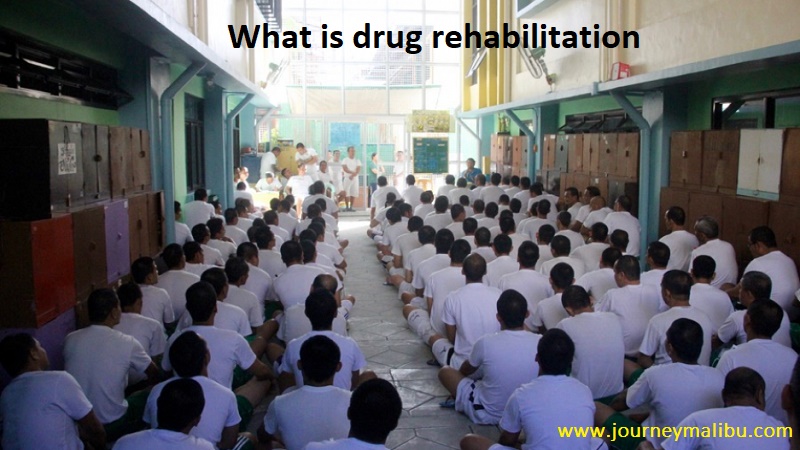
There are many alternative forms of drug rehabilitation treatments out there. There are treatment centers that are designed to assist folks with sure forms of dependence, there are patient facilities, and there are inmate facilities and lots of additional. All differing types of drug rehab centers in the USA serve an equivalent purpose, however: facilitate people to fight their drug habit and build healthy choices.
What are drug rehabilitation programs?
Outpatient Treatment program – Can be delivered from a doctor’s workplace or alternative clinical setting. Patient treatment lies close to the “least intensive” finish of the treatment time and is usually reserved for those with the smallest amount severe drug abuse problems, active employment commitments and a strong set of social support in situ. Treatment will vary from drug education, sober skills coaching, to a lot of oft scheduled subject matter and addiction medical aid and, even, patient hospital ward programs. Treatment length is variable and contingent recovery progress.
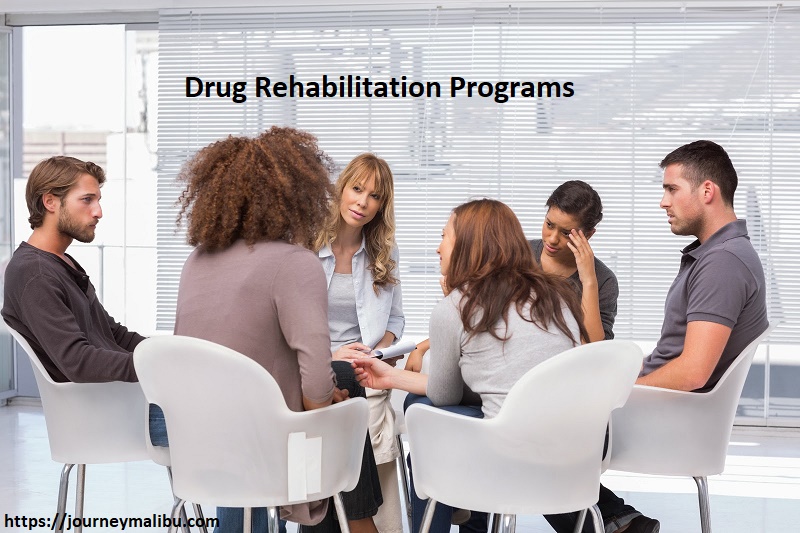
Day Treatment Programs – Somewhat a lot of intensive than the previous category; still, this consists of the many of the services on the market in regular patient treatment however administered a touch a lot of often and/or for extended periods of the day. To boot, intensive patient or partial hospitalization will accommodate patients with co-existing medical or mental state problems and permit them access to several of the services that exist for Associate in nursing inmate population throughout the hours of the day that the intensive patient treatment happens.
Residential Treatment – For additional severe misuse problems that need the soundness of uninterrupted attention; residents are placed during a 24-hour care scenario, with the potential advantage of removing them from causative things or factors that exacerbate their addiction to start with. Daily activities will carry with it varied individual and cluster direction sessions. Several residential treatment centers additionally offer monitored ward and withdrawal yet as additional intense treatment for twin diagnosing psychiatrically or activity addiction problems.
Intensive Inpatient Hospitalization – Full-time, totally supervised, hospital-based take care of those with severe drug abuse problems in addition as serious co-existing medical or psychological state conditions. Frequently, an intensive patient hospitalization can begin an amount of drug abuse treatment if the patient has been admitted in an exceedingly seriously deteriorated medical or medical specialty state, and shut observation and/or medical intervention to come back them to stable condition is so as.
What are the benefits of drug rehabilitation?
For many people that are condemned of drug charges are sent to jail or needed to pay fines or both. The law in many countries gratingly criminalizes the illicit use of controlled substances or illegal medicine. As you’ll grasp, it will be very tough for those with addictions to prevent victimization the medicine they’re hooked in to. Several health specialists believe that rehabilitation is a lot of compassionate and effective than causation drug users to jail.
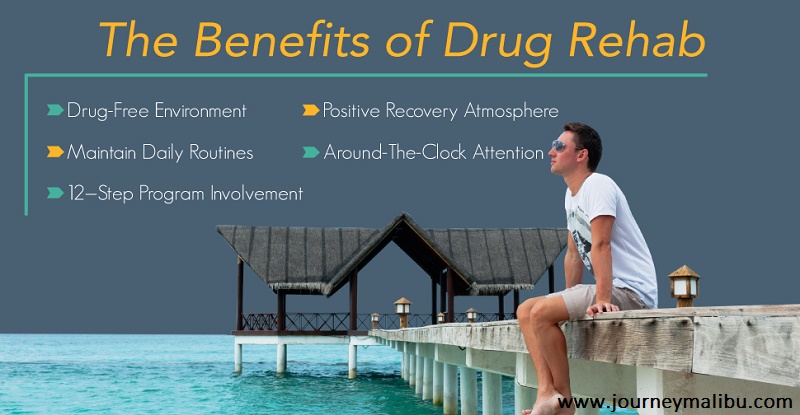
According to the National Institute on misuse, habituation could be a chronic disease, having physical, mental and emotional effects like those stricken by physical ailments, like polygenic disorder, heart condition or cancer. People that are in cancer remission could suffer a relapse when time. Those that are managing a chronic condition like polygenic disorder would like continuous management, together with medication and living a healthy fashion. You would possibly see however a similar will apply to habituation. Somebody who is fighting addiction can like skilled care, understanding and compassion to assist him or she overcome the matter. Like several chronic health conditions, addicts could relapse into misuse even with long-run care and treatment.
Some specialist’s advice that the foremost effective thanks to facilitating somebody overcome habituation are to continue rehabilitative care, instead of treating the person as a criminal. The NIDA claims that long-run treatment will facilitate addiction sufferers scale back their possibilities of relapsing and develop healthier life skills. If you have got honey who suffers from habituation, you’ll like to hunt ways in which to urge him or her skilled facilitate to beat the addiction and avoid prosecution.
Phases of drug rehabilitation
Treatment Initiation
This stage of treatment begins as presently as a person asks for facilitating. A person’s initial purpose of contact with habit treatment could also be a medical doctor or mental state skilled who then refers the person to an addiction treatment program. Others enter treatment through the criminal justice system. Despite however someone enters into treatment, this first amount tends to be characterized by ambivalence concerning recovery. Folks typically feel unsure concerning letting go all substance use, and that they could also be immune to treatment.
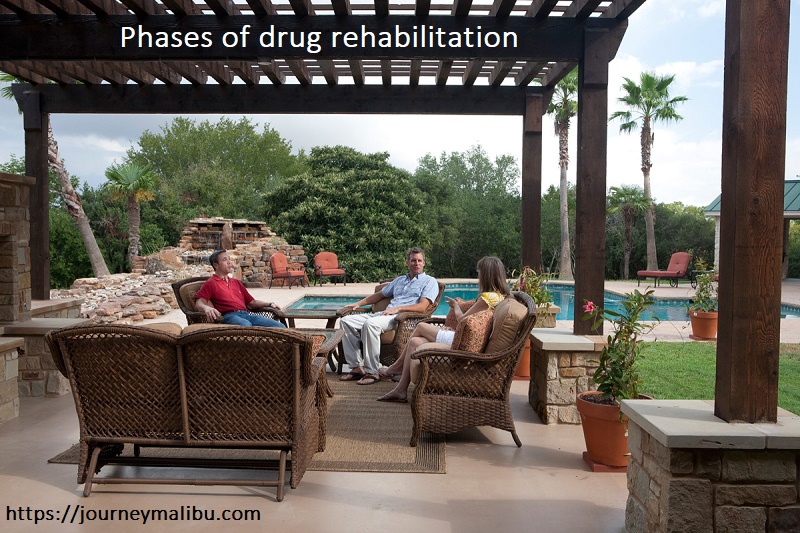
The first part of treatment focuses on establishing a treatment arrange and giving stability to the individual in treatment. The main focus throughout now is on education concerning addiction and therefore the treatment choices out there, moreover as preparation for the ultimate relinquishing of all substance use. For some, this part might embody detoxification. Once ambivalence concerning recovery is resolved, the consumer is ready to start the ensuing stage of the recovery method.
Early Abstinence
Intake-process time after establishing abstinence can involve feeling emotionally fragile, overwhelmed, and confused. An addiction can be pervasive and function as an individual’s main coping strategy in life; once substance use is taken away, it can be difficult to initially establish new, healthier ways of coping. For this reason, the Substance Abuse and Mental Health Services Administration’s (SAMHSA) treatment protocols recommend this phase of treatment focus on immediate, solvable problems, like preventing relapse and managing cravings. More emotionally difficult steps in therapy, such as discussing the underlying causes of substance use, are generally delayed until abstinence is better established and can be maintained on a long-term basis.
Maintenance of Abstinence
Support Group Once lasting abstinence has been established, the therapy process can move toward recognition of how substance abuse has negatively impacted the individual’s life. This initial period spent in therapy is typically the most intense and involved; people in this stage of therapy may be enrolled in a residential or intensive outpatient treatment program and spend several days a week in treatment if they don’t reside at a facility on a full-time basis. During this phase, new life skills and coping mechanisms can be established, which help the individual will avoid relapse in the future.
Advanced Recovery
Recovery from an addiction is a lengthy, often lifelong, process. The longer a person lives in recovery, the easier maintenance of that recovery becomes; however, since addiction is a chronic disorder, there is no foolproof cure. Recovery must be maintained on an ongoing basis.
The later stages of recovery tend to focus less on substance abuse. Instead, they begin to focus on long-term goals and recognition of what could be lost if relapse were to occur. People in treatment for substance use may need to be integrated back into the community and their families, re-establishing relationships and identities. Letting go of guilt and shame can be an important part of this stage, as individuals learn to think of themselves as whole people.
Cost for drug rehabilitation
People considering rehabilitation (rehab) for addiction typically wish to understand what proportion a treatment program can price. The value of treatment typically depends on:
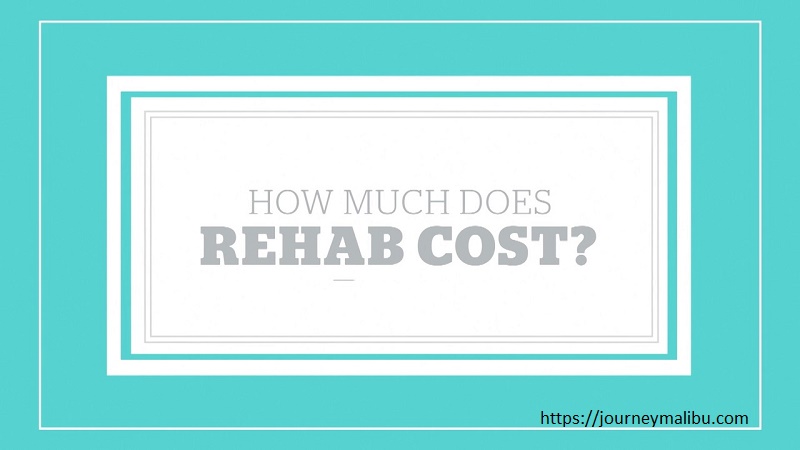
Type of facility—for example, patient facilities tend to price over patient treatment programs as a result of the supply of medical aid, meals, lodging, and activities.
Location of the facility—such as close to home or not, or within the mountains or on a beach.
Size of the program—whether it’s an outsized program with a lot of participants or a smaller, a lot of intimate rehabs.
Treatments provided—which could or might not embody detoxification (detox), medication-assisted treatment, numerous medical aid choices, and comprehensive medical aid.
Length of the program—which will vary from 30-90 days looking on a person’s desires.
Amenities offered—such as a natatorium, associate on-site gymnasium, massage medical aid, nutrition content, and more.
What is the success rate of drug rehabilitation?
Current relapse rates show that there’s a 40 to 60 % probability that people who attend rehab can relapse. However, this doesn’t mean that drug rehab isn’t effective.
Like any different chronic sickness like polygenic disease or respiratory illness, relapses are sadly common. Medical analysis has tried that addiction and alcoholism are diseases, not simply a scarcity of self-possession or complete carelessness.
When considering this rehabilitation success rates you want to 1st decide what’s thought of “effective” treatment for drug dependence? What is thought of “successful” treatment? The goal of drug rehab isn’t solely to induce the individual sober however to assist them to find out how to perform effectively in their everyday lives and among society.
It is troublesome to accurately gather information on relapse rates as a result of this is able to need researchers to follow people throughout their lives. Will the very fact that a personal relapsed mean that treatment was ineffective or will it mean that they’re an addict or alcoholic which relapse is inevitable?
While relapse isn’t a part of every single story, it’s still improbably common. With relapse rates showing that a pair of to three in every five people that attend treatment lapse, it’s still an awfully common a part of the addiction treatment business. This doesn’t mean, though, that the treatment center has unsuccessful. They supply each addict and alcoholic who comes through their doors with the resources to remain sober. They cannot follow the individual throughout their life, though, making certain they are doing not relapse at each twist and switch of life.
You cannot base the effectiveness of a treatment center solely on the number of individuals who relapse, you want to additionally take into thought those that keep sober.
Though relapse rates are presently forty to sixty percent of people who attend treatment, this still implies that forty to sixty percent of people who attend treatment keep sober. These folks cannot be discounted thanks to the relapse of some. The treatment works effectively within the lives of those people who carry what they learn in treatment throughout the remainder of their lives. The people that keep sober take the tools and brick mechanisms learned in treatment into their everyday lives and apply them. They pause before creating rash selections and instead suppose rationally regarding the implications. Those that keep thumber maintain a vigorous effort to try to so and treatment prove to be effective for them. Relapse rates don’t apply to those folks, however, there’s no guarantee they’re going to keep sober, either.


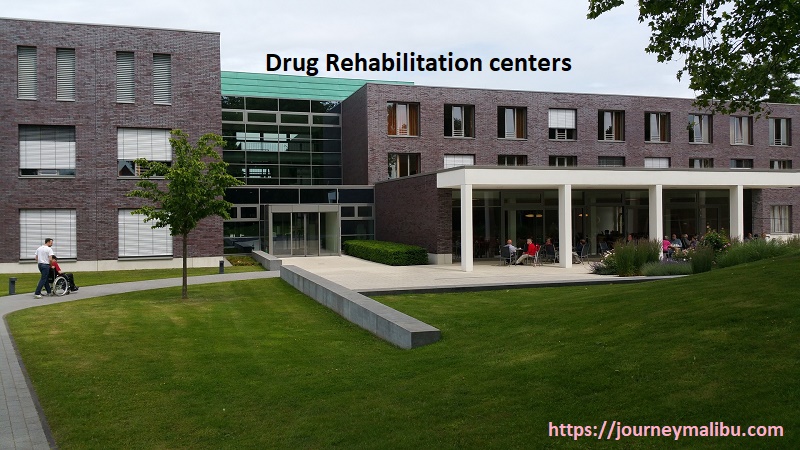
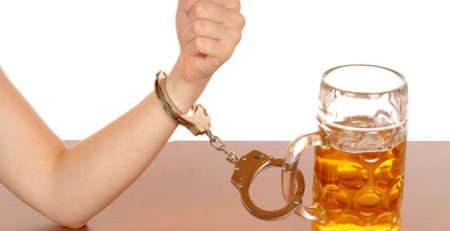


Leave a Reply